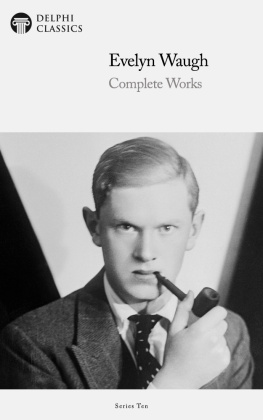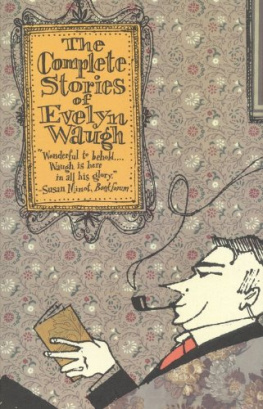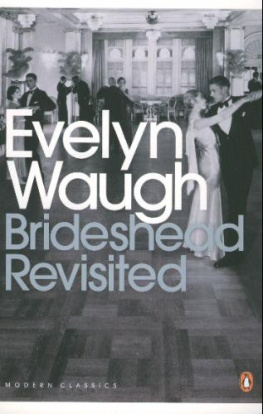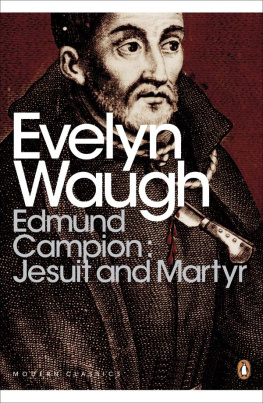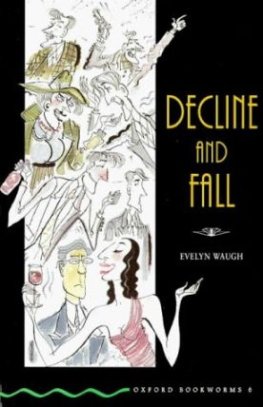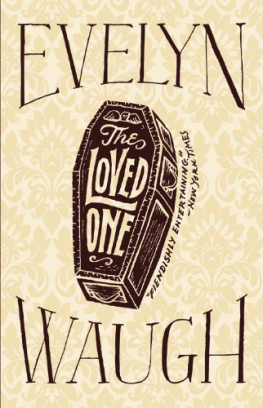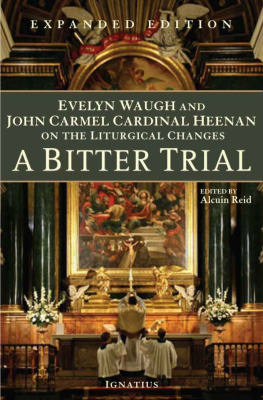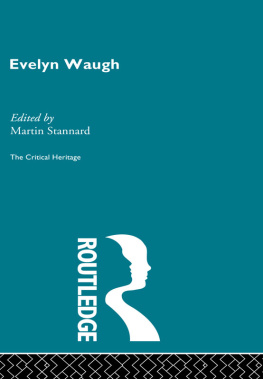
The Complete Works of
EVELYN WAUGH
(19031966)

Contents

Delphi Classics 2019
Version 2


Browse our Main Series

Browse our Ancient Classics

Browse our Poets

Browse our Art eBooks

Browse our Classical Music series

The Complete Works of
EVELYN WAUGH

By Delphi Classics, 2019
COPYRIGHT
Complete Works of Evelyn Waugh

First published in the United Kingdom in 2019 by Delphi Classics.
Delphi Classics, 2019.
All rights reserved. No part of this publication may be reproduced, stored in a retrieval system, or transmitted, in any form or by any means, without the prior permission in writing of the publisher, nor be otherwise circulated in any form other than that in which it is published.
ISBN: 978 1 78877 996 8
Delphi Classics
is an imprint of
Delphi Publishing Ltd
Hastings, East Sussex
United Kingdom
Contact: sales@delphiclassics.com

www.delphiclassics.com
Parts Edition Now Available!

Love reading Evelyn Waugh ?
Did you know you can now purchase the Delphi Classics Parts Edition of this author and enjoy all the novels, plays, non-fiction books and other works as individual eBooks? Now, you can select and read individual novels etc. and know precisely where you are in an eBook. You will also be able to manage space better on your eReading devices.

The Parts Edition is only available direct from the Delphi Classics website.
For more information about this exciting new format and to try free Parts Edition downloads , please visit this link .
Explore Interwar literature with Delphi Classics

For the first time in digital publishing history, Delphi Classics is proud to present the complete works of these important authors.
Explore Edwardian era authors
Sword of Honour Trilogy

(1952)
(1955)
(1961)
(1965 revised edition of the three novels)
The Novels

Waugh was born in Hampstead, London in 1903

When Waugh was three, his family moved into Underhill, near Golders Green

Waugh as a young man
Decline and Fall

Decline and Fall was first published by Chapman and Hall in England in 1928. It was the authors debut novel; he had written an earlier work of fiction in 1924 called The Temple at Thatch , but had burned the manuscript in 1925 after his friend and writer, Harold Acton, had strongly criticised it. Waugh lapsed into a period of deep depression and even determined to end his own life, before having second thoughts about it. In time, he regained his self-confidence and once more started to believe in his abilities as a novelist. The title of the work references Edward Gibbons The History of the Decline and Fall of the Roman Empire and Oswald Spenglers The Decline of the West. The novel was partially inspired by the authors observations while attending the boarding school Lancing College and his later experiences at Oxford University.
Decline and Fall is a satirical novel that mocks university life and the fragmented and morally confused high society of Britain in the 1920s. It centres on Paul Pennyfeather, a theology student at Oxford, who is expelled for participating in drunken debauchery; he loses his inheritance as a result of his behaviour and is compelled to go and teach at a school in Wales. He soon begins a relationship with Margot Beste-Chetwynde, the wealthy mother of one of his pupils. Unfortunately, Beste-Chetwyndes affluence comes from a less than reputable source and Pennyfeather becomes implicated in her illegal endeavours.
The book was illustrated by Waugh himself and it fared well with critics. The Guardian , in 1928, praised it as a great lark; its author has an agreeable sense of comedy and characterisation, and the gift of writing smart and telling conversation, while his drawings are quite in tune with the spirit of the tale. The review also compared the superficial presentation in the novel to that employed by P. G. Wodehouse. Author Arnold Bennett hailed Decline and Fall as an uncompromising and brilliantly malicious satire, while the writer John Mortimer called it Waugh's most perfect novel ... a ruthlessly comic plot.
The novel was adapted for film in 1969 as Decline and Fall....of a Birdwatcher by director John Krish and it starred Robin Phillips and Donald Wolfit. In 2017, there was a three-part BBC television dramatisation of the book starring Jack Whitehall, David Suchet and Eva Longoria.

Next page
